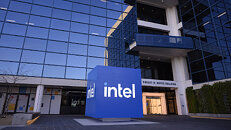- Joined
- Aug 19, 2017
- Messages
- 2,804 (1.02/day)
Intel's recent financial woes have brought the company into severe cost-cutting measures, including job cuts and project delays. However, a silver lining remains—Intel is reportedly in the final stages of securing $8.5 billion in direct funding from the US government under the CHIPS Act, delivered by the end of the year. The potential financing comes at a crucial time for Intel, which has been grappling with financial challenges. The company reported a $1.6 billion loss in the second quarter of 2024, leading to short-term setbacks. However, thanks to sources close to the Financial Times, we learn that Intel's funding target will represent the CHIPS Act's largest share, leading to a massive boost to US-based semiconductor manufacturing.
Looking ahead, the potential CHIPS Act funding could serve as a catalyst for Intel's resurgence, reassuring both investors and customers about the company's future. A key element of Intel's recovery strategy lies in the ramp-up of production for its advanced 18A node, which should become the primary revenue driver for its foundry unit. This advancement, coupled with the anticipated government backing, positions Intel to potentially capture market share from established players like TSMC and Samsung. The company has already secured high-profile customers such as Amazon and (allegedly) Broadcom, hinting at its growing appeal in the foundry space. Moreover, Intel's enhanced domestic manufacturing capabilities align well with potential US government mandates for companies like NVIDIA and Apple to produce processors locally, a consideration driven by escalating geopolitical tensions.

View at TechPowerUp Main Site | Source
Looking ahead, the potential CHIPS Act funding could serve as a catalyst for Intel's resurgence, reassuring both investors and customers about the company's future. A key element of Intel's recovery strategy lies in the ramp-up of production for its advanced 18A node, which should become the primary revenue driver for its foundry unit. This advancement, coupled with the anticipated government backing, positions Intel to potentially capture market share from established players like TSMC and Samsung. The company has already secured high-profile customers such as Amazon and (allegedly) Broadcom, hinting at its growing appeal in the foundry space. Moreover, Intel's enhanced domestic manufacturing capabilities align well with potential US government mandates for companies like NVIDIA and Apple to produce processors locally, a consideration driven by escalating geopolitical tensions.

View at TechPowerUp Main Site | Source




 I wish I had friends like the top dogs at Intel do.
I wish I had friends like the top dogs at Intel do.


